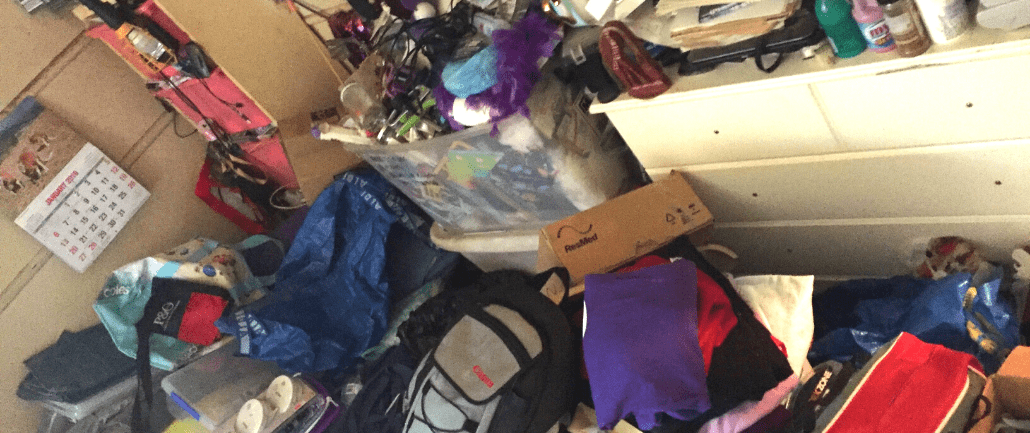How to Help a Friend with Hoarding Disorder
When you see a person living in a house filled with 5cm of dog faeces and only a 70cm wide path between all the junk, your natural tendency is to ask, “Is that person in his/her right mind?” Of course, if you’ve never encountered a person with a hoarding disorder, at first glance, it would be hard to understand why they would choose to live in such a condition. It’s easier to judge when you don’t know the person but what if that person is your friend? Or a loved one? In this article, we’ll talk about how you can help a friend with a hoarding disorder.
What is Hoarding?
It’s a condition where someone collects things that they find valuable, though others might consider them junk. A person with Hoarding Disorder normally has an issue with removing the things he/she has collected. As a consequence, the property will be filled with piles of clutter which can have detrimental effects on health and way of living. Check out our blog on the different levels of hoarding.
Post-traumatic stress disorder, dementia, anxiety or psychiatric illnesses are other common causes of compulsive hoarding. That is why we have to be empathetic when approaching someone with a hoarding disorder.
How do you help a friend with Hoarding Disorder?
It can be a delicate and daunting thing to talk to a friend who suffers from Hoarding Disorder. Most especially if they don’t think they need help. The first thing that usually comes to mind when confronting a hoarder is to be straight with them and pressure them to sort things out or clean up. But sometimes, that’s the last thing they need from a loved one. The following are some of the ways to help someone you know with HD:
1. Understand what is Hoarding
Begin by educating yourself on what hoarding is. See things from a hoarder’s perspective. Imagine this. You’ve been collecting all these music albums all your life and music has always been your escape from all your problems. Then you get told that you’re crazy and that you have to stop it right away. How would you feel? It may make no sense to you but a Hoarding Disorder is commonly caused by underlying issues. If you look at it from that lens, you’ll be able to understand it better.
2. Empathize and be willing to help
Don’t enforce change. Have patience and empathize. Remember that a person with Hoarding Disorder treats the objects they’ve hoarded as “valued possessions.” Therefore, you must be willing to help them every step of the way. People with HD will most likely isolate themselves in the fear of judgment by other people, especially their loved ones. Be there for them.
3. Understand that it’s a process
It’s not something that you can just change with a flick of your finger. Go through the process with them. Instead of telling them to sort their stuff, help her. Instead of suggesting a therapist, offer to accompany her. Set realistic goals and acknowledge the small wins to encourage your friend. Let your friend know that no matter how long it takes, you’ll be with them through it all.
4. Hire professional extreme cleaners who can empathize
We’ve encountered many cleaners in the past who have treated hoarders as another job. That’s why it’s so easy for them to throw away and label all the hoarders’ possessions as junk. But a real professional empathizes with the person affected by hoarding. That is exactly what we do at Martijn van Lith and what sets us apart from our competitors. We empathize and we provide confidentiality. We respect your privacy and we handle your possessions carefully.
Martijn van Lith offers professional, ethical, and confidential extreme decluttering/cleaning services. Why choose us? Because we understand our clients very well, we go beyond just doing the job- we build relationships with our clients, and we treat your possessions with caution and care. We’ve been featured in the news, as well. Our loyal customers can attest to the quality of our services. Check out their testimonials here.



